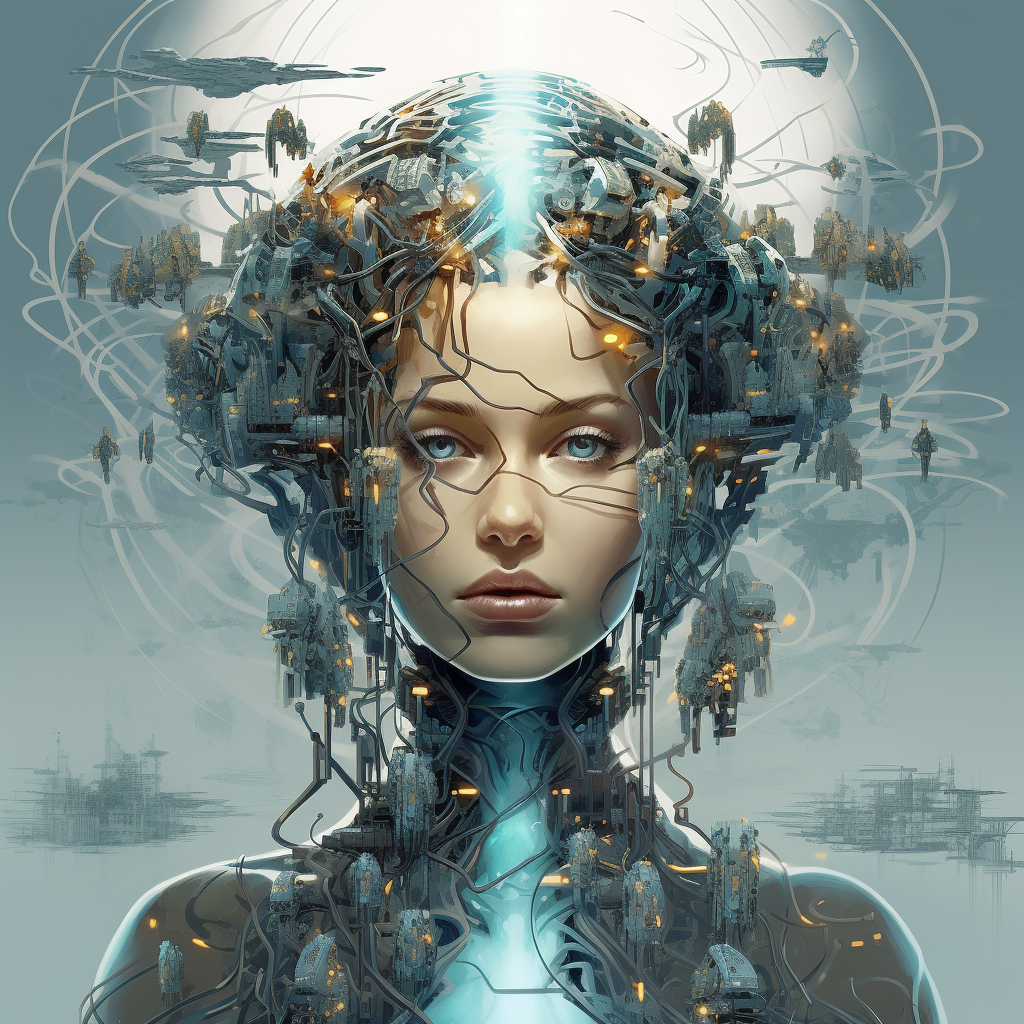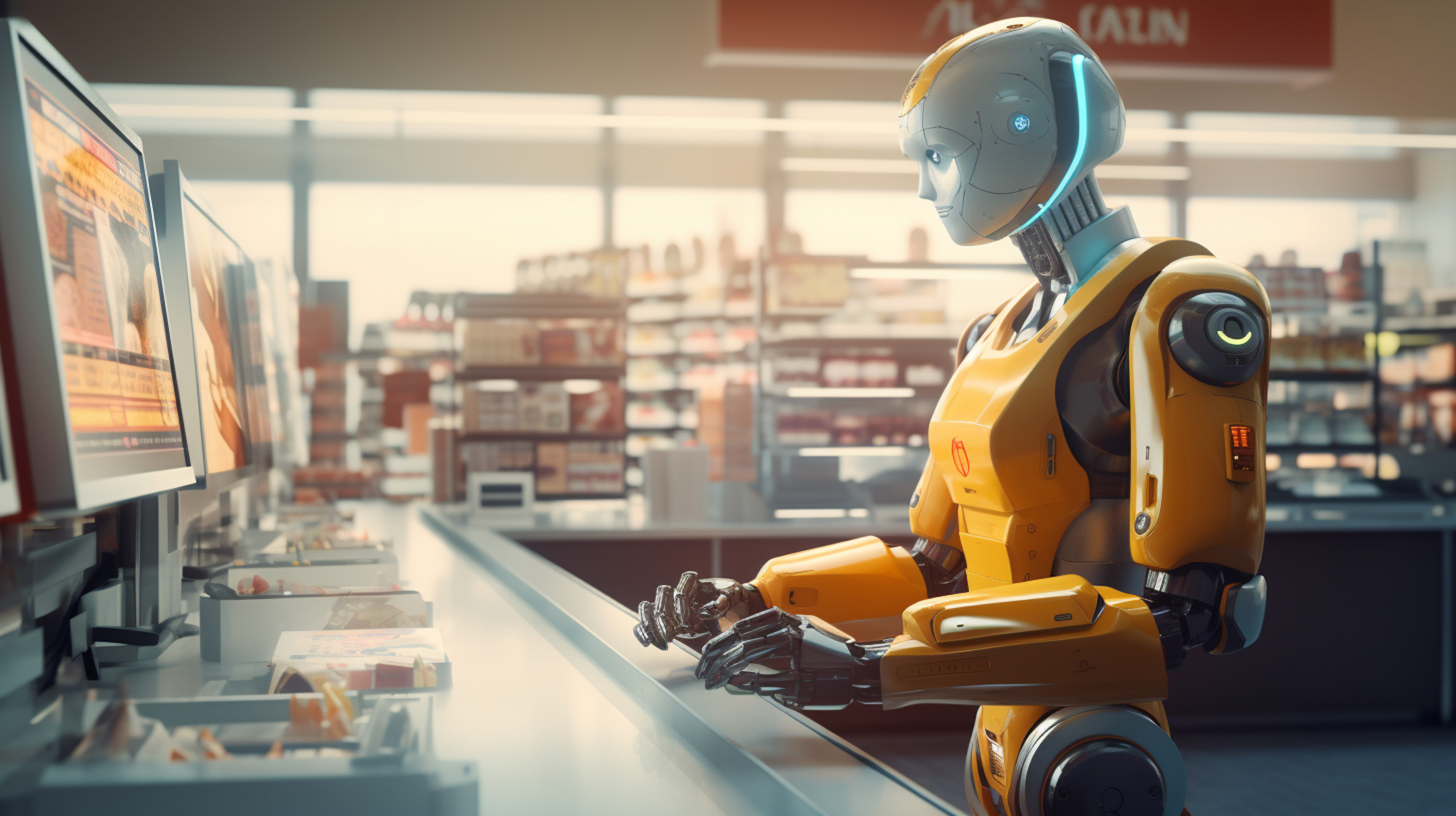AI is not just everywhere; it's pervasive, and there's no escaping it.
Artificial intelligence has woven itself into the fabric of our daily lives, transforming the way we live, work, and interact with the world. In this article, we will explore the all-encompassing presence of AI, including the transformative power of Generative AI, and discuss what individuals, industries, and the next generation should do to adapt to this groundbreaking force.
The Pervasiveness of AI
AI is no longer a buzzword reserved for tech enthusiasts or science fiction aficionados. It has become an integral part of our existence, shaping our routines, preferences, and experiences in profound ways. Let's delve deeper into the pervasive nature of AI, including the revolutionary impact of Generative AI:
1. Smartphones: Enhancing Personalization and Efficiency
Our smartphones, those ubiquitous companions, have become AI powerhouses. Within their sleek frames, AI algorithms work tirelessly to make our lives more convenient and efficient. Voice assistants like Siri and Google Assistant use natural language processing to understand and respond to our queries. Predictive text algorithms learn from our typing patterns to suggest the next word, making our messaging faster. And when we snap a photo, AI-driven image recognition identifies faces, objects, and scenes, organizing our digital memories effortlessly.
2. Social Media: Shaping Our Digital Experience
The social media platforms we frequent rely heavily on AI to curate our content feeds. AI algorithms analyze our past interactions, likes, shares, and comments to decide what we see next. They segment users into categories and target us with personalized advertisements. This AI-driven curation keeps us engaged, scrolling, and sharing, and often, we don't even realize the extent of AI's influence on our digital experience.
3. Online Shopping: AI-Powered Personalized Commerce
E-commerce has been revolutionized by AI. Online retailers employ algorithms that track our browsing history and purchase behavior, enabling them to recommend products tailored to our tastes. Pricing optimization algorithms adjust product prices in real-time based on supply, demand, and our willingness to pay. Even logistics and inventory management rely on AI to ensure that our orders are efficiently fulfilled.
4. Healthcare: AI's Role in Diagnosis and Treatment
In healthcare, AI is a life-saver in the truest sense. From early disease detection to personalized treatment plans, AI-driven medical technologies are transforming patient care. Machine learning algorithms analyze medical images, such as X-rays and MRIs, to spot anomalies that might elude the human eye. AI also crunches vast datasets to identify patterns and predict disease outbreaks, helping healthcare professionals make informed decisions.
5. Manufacturing: Smart Factories for Efficiency
Factories of today have become smart factories, thanks to AI. Robots and automation systems, guided by AI algorithms, assemble products with precision and efficiency. These AI-powered systems reduce waste, improve production quality, and adapt to changing demands in real time. The result? Higher productivity and lower costs.
6. Education: Personalized Learning
AI is revolutionizing education by providing personalized learning experiences. AI algorithms adapt learning materials and pace to individual student needs, making education more engaging and effective. It's like having a personal tutor, catering to your strengths and weaknesses, guiding you through your educational journey.
7. Generative AI: Creative and Artistic Endeavors
Generative AI, a subfield of AI, is responsible for producing creative and artistic content. From generating music and art to crafting written content, Generative AI can mimic human creativity. It's not just about automation; it's about opening new avenues for human expression and exploration. Generative AI can help artists and writers generate new ideas, inspiring fresh perspectives and creativity.
8. Transportation: The Rise of Self-Driving Cars
The automotive industry is at the cusp of a revolution with self-driving cars. These vehicles rely on AI for navigation, object detection, and decision-making. They optimize routes, reduce accidents, and have the potential to transform the way we move, making transportation safer and more efficient.
9. Security: Safeguarding Digital Identities
In the digital world, AI is our guardian. It monitors our online activities, constantly vigilant for threats and suspicious behavior. AI-driven security systems detect anomalies, protect our data, and secure our digital identities.
10. Science & Technology: Accelerating Innovation
AI is accelerating scientific research across various fields. It analyzes astronomical data to discover new celestial objects, deciphers the genetic code for medical breakthroughs, and simulates complex physical processes that were once computationally impossible.
11. Logistics: Streamlining Supply Chains
In logistics, AI optimizes supply chains, ensuring that goods reach us efficiently. It predicts demand, manages inventory, and orchestrates the movement of products, reducing waste and costs.
12. Environmental Monitoring: AI for a Greener Planet
The Earth benefits from AI too. AI helps us monitor air quality, weather patterns, and climate change. By analyzing data from satellites and ground-based sensors, AI algorithms provide insights into environmental trends, aiding in addressing pressing environmental challenges.
What Can You Do to Adapt?
Given this pervasive AI landscape, it's crucial to consider how to adapt:
Embrace Lifelong Learning: As AI continues to evolve, staying up-to-date with the latest developments and acquiring new skills is crucial. Online courses, workshops, and certifications can help individuals adapt and remain competitive.
Collaborate with AI: In various industries, AI can enhance human capabilities rather than replace them. Embrace AI as a tool to augment your work, be it in healthcare diagnosis, data analysis, or creative endeavors.
Privacy Awareness: Understand the implications of AI on your privacy. Be mindful of the data you share and familiarize yourself with privacy settings on digital platforms.
Ethical Considerations: Encourage ethical AI practices within organizations and advocate for transparency, fairness, and accountability in AI systems.
The Next Generation and AI
For the next generation, growing up in an AI-driven world will have profound implications:
Education: AI will offer personalized learning experiences, adapting to individual needs and abilities. Students will need to be tech-savvy and adaptable, leveraging AI as a learning tool rather than a replacement for traditional education.
Career Choices: AI will create new job opportunities while transforming existing ones. STEM (Science, Technology, Engineering, and Mathematics) skills will be highly valued, and interdisciplinary knowledge will be essential.
Ethical Awareness: Teaching ethical considerations in AI development and use will be crucial to instill responsible AI practices from an early age. The next generation must understand the implications of AI on society, privacy, and ethics.
Conclusion
The phrase "There is AI in the AIR" serves as a powerful reminder of the all-encompassing presence of artificial intelligence in our lives. As individuals, industries, and the next generation navigate this AI-driven world, it's essential to embrace AI as a tool for empowerment, maintain ethical standards, and adapt to the ever-evolving landscape. The future is AI, and by understanding and harnessing its potential, we can collectively shape a more innovative, efficient, and sustainable world for generations.




